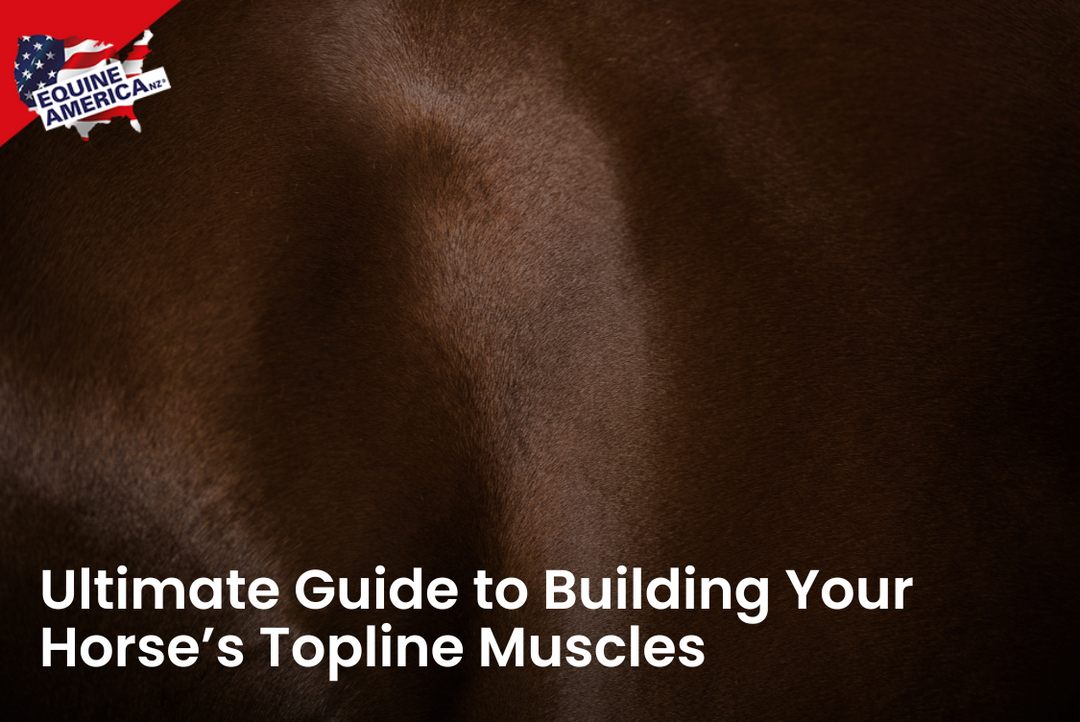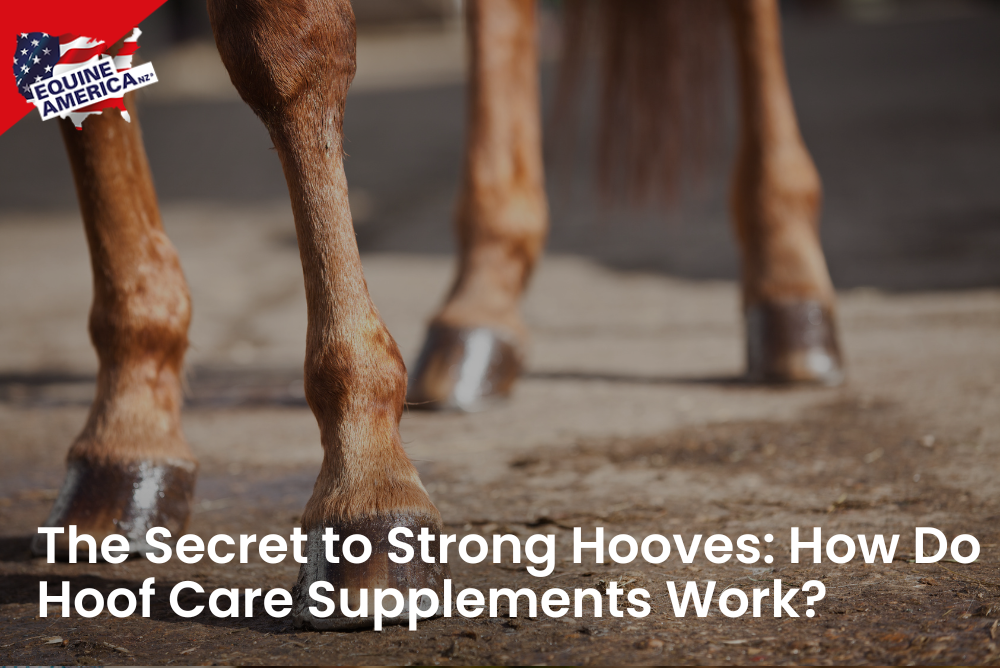Proper nutrition is crucial for maintaining a horse's overall health and well-being. When it comes to building muscle, a balanced diet tailored to meet the specific needs of your horse is essential.
In this article, we will explore the key components of a muscle-building diet for horses and provide tips on how to optimise your horse's nutrition for muscle development.
Understanding the Basics of Equine Nutrition
Before diving into the specifics of a muscle-building diet, it's important to understand the basic principles of equine nutrition. Horses require a balanced diet that provides essential nutrients, including protein, carbohydrates, fats, vitamins, and minerals, to support overall health and performance.
Key Nutrients for Muscle Growth
Protein is a critical nutrient for muscle development in horses. Amino acids, the building blocks of protein, play a crucial role in muscle repair and growth. In addition to protein, carbohydrates provide the energy needed for muscle function, while fats play a role in energy storage and hormone production.
Ideal Body Condition Score for Muscle Development
Maintaining an ideal body condition score (BCS) is essential for muscle development in horses. A BCS of 5 to 6 on a scale of 1 to 9 is considered ideal for most horses. Horses that are underweight may struggle to build muscle, while overweight horses may face health issues that can hinder muscle development.
Forage First: The Foundation of a Muscle-Building Diet
Forage should form the foundation of your horse's diet, as it provides essential nutrients and promotes digestive health. High-quality hay should be the primary source of forage, supplemented with pasture when available. If pasture is limited, consider supplementing with forage alternatives such as hay cubes or beet pulp.
Importance of Quality Hay
Quality hay is essential for providing the necessary nutrients for muscle development. Look for hay that is free from mould, dust, and weeds, as these can negatively impact your horse's health. Consider having your hay tested to ensure it meets your horse's nutritional needs.
Supplementing with Pasture and Forage Alternatives
If pasture is available, allow your horse access to graze for several hours a day. Pasture provides a variety of nutrients not found in hay or concentrates. If pasture is limited, consider supplementing with hay cubes, beet pulp, or other forage alternatives to ensure your horse receives an adequate amount of forage.
Concentrates: Choosing the Right Feed for Muscle Development
In addition to forage, concentrates can be used to supplement your horse's diet and provide additional nutrients needed for muscle development. When choosing a concentrate, look for feeds that are high in protein and amino acids, as well as vitamins and minerals.
Protein Requirements for Muscle Growth
Protein is essential for muscle development, as it provides the necessary amino acids for muscle repair and growth. Horses in moderate to heavy work may require a higher protein intake to support muscle development. Look for concentrates that contain high-quality protein sources such as soybean meal or alfalfa meal.
Selecting High-Quality Feeds and Supplements
When selecting feeds and supplements for your horse, it's important to choose products that are high in quality and free from contaminants. Look for feeds that are manufactured by reputable companies and have been tested for quality and safety.
Essential Amino Acids and Their Role in Muscle Development
Amino acids are the building blocks of protein and play a crucial role in muscle development. Three amino acids, in particular, are essential for muscle growth: lysine, methionine, and threonine. These amino acids are not produced by the horse's body and must be obtained through diet.
Importance of Lysine, Methionine, and Threonine
Lysine is essential for muscle growth and repair, while methionine plays a role in protein synthesis. Threonine is important for overall muscle health and function. Ensuring your horse's diet contains adequate levels of these amino acids is crucial for supporting muscle development.
Sources of Amino Acids in Horse Feeds
Many concentrates and supplements are formulated to provide the necessary amino acids for muscle development. Look for feeds that list lysine, methionine, and threonine in their ingredient list. Additionally, consider supplementing with amino acid-specific supplements to ensure your horse receives an adequate intake.
Fat for Fuel: Incorporating Healthy Fats into Your Horse's Diet
In addition to protein and carbohydrates, fat plays a crucial role in muscle development. Fats are a concentrated source of energy and can help support muscle growth and repair. Including healthy fats such as omega-3 and omega-6 fatty acids in your horse's diet can be beneficial.
Benefits of Fat for Muscle Building
Fat is an excellent source of energy for horses in moderate to heavy work, as it provides more calories per gram than protein or carbohydrates. Including fat in your horse's diet can help support muscle development and improve overall performance.
Sources of Omega-3 and Omega-6 Fatty Acids
Omega-3 and omega-6 fatty acids are essential fats that must be obtained through the diet. Sources of omega-3 fatty acids include flaxseed, chia seeds, and fish oil. Omega-6 fatty acids can be found in corn oil, soybean oil, and sunflower oil. Including these fats in your horse's diet can help support muscle development and overall health.
Vitamin and Mineral Supplements for Muscle Health
In addition to protein, carbohydrates, and fats, vitamins and minerals play a crucial role in muscle development. Ensuring your horse receives an adequate intake of these nutrients is essential for supporting muscle growth and overall health.
Key Vitamins and Minerals for Muscle Function
Vitamins and minerals such as vitamin E, selenium, and magnesium are important for muscle function and health. Vitamin E is a powerful antioxidant that helps protect muscle cells from damage. Selenium is essential for muscle metabolism, while magnesium plays a role in muscle relaxation.
Balancing Mineral Intake for Optimal Muscle Development
While vitamins and minerals are essential for muscle development, it's important to ensure your horse receives them in the correct balance. Excessive or deficient levels of certain minerals can negatively impact muscle function and overall health. Work with your veterinarian or equine nutritionist to develop a balanced diet that meets your horse's individual needs.
Hydration: The Overlooked Element of Muscle Growth
Hydration is often overlooked but is essential for muscle function and overall health. Dehydration can lead to muscle cramping and fatigue, hindering muscle development and performance.
Importance of Water for Muscle Function
Water plays a crucial role in muscle function, acting as a medium for nutrient transport and waste removal. Ensuring your horse has access to clean, fresh water at all times is essential for supporting muscle development and overall health.
Signs of Dehydration in Horses
Signs of dehydration in horses include sunken eyes, tacky gums, and decreased skin elasticity. If you suspect your horse is dehydrated, offer them water immediately and consult with your veterinarian.
Feeding Frequency and Consistency
Establishing a feeding routine that is consistent and provides the necessary nutrients for muscle development is essential for supporting overall health and performance in horses.
Establishing a Feeding Routine
Feeding your horse at regular intervals throughout the day can help maintain a consistent energy level and support muscle development. Divide your horse's daily ration into several smaller meals rather than one or two large meals.
Avoiding Overfeeding and Underfeeding
Overfeeding can lead to weight gain and obesity, which can negatively impact muscle development and overall health. Conversely, underfeeding can result in inadequate nutrient intake, hindering muscle growth and performance. Monitor your horse's body condition score and adjust their diet accordingly to ensure they receive the appropriate amount of feed for their needs.
Final Thoughts
Optimising your horse's diet for muscle development requires a comprehensive understanding of equine nutrition and the specific needs of your horse. By providing a balanced diet that includes high-quality forage, concentrates, essential amino acids, healthy fats, and adequate hydration, you can support muscle growth and overall health in your horse.
Work with your veterinarian or equine nutritionist to develop a nutrition plan tailored to your horse's individual needs, and enjoy watching your horse thrive with strong, healthy muscles.
If you’re looking for high-quality supplements for your horse, consider exploring the range of products offered by us here at Equine America NZ. Our extensive selection of products along with performance-enhancing supplements provide you with suitable options to support your horse’s overall health and performance.




